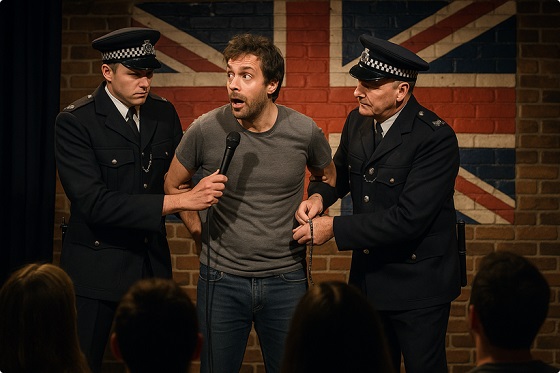Uncategorized
McCain buried at Naval Academy alongside a longtime friend
ANNAPOLIS, Md. — Sen. John McCain’s final journey ended Sunday on a grassy hill at the U.S. Naval Academy within view of the Severn River and earshot of midshipmen present and future, and alongside a lifelong friend.
A horse-drawn caisson carrying the senator’s casket led a procession of mourners from the academy’s chapel to its cemetery following a private service. The senator’s widow, Cindy, and his children were among those who walked behind the caisson. Joining them were family and friends as well as members of McCain’s Class of 1958, military leaders and academy midshipmen.
About 4 p.m. a flyover of military aircraft
After the American flag was removed from the casket, a grieving Cindy McCain pressed her cheek to its surface and McCain sons Jimmy and Jack shared a hug.
The burial was private as per the wishes of McCain, the Arizona Republican and 2008 presidential nominee died Aug. 25 from brain cancer at age 81. Vehicles that had carried mourners began leaving the area between 4:30 and 5 p.m.
One scheduled speaker at the service, Sen. Lindsey Graham, said before the service that he would tell the audience that “nobody loved a soldier more than John McCain, that I bear witness to his commitment to have their back, travel where they go, never let them be forgotten.” Also expected to pay tribute were David Petraeus, a retired general and former CIA director, and McCain’s son Jack.
As the hearse carrying McCain passed through a gate and into the academy, there was loud applause from the several hundred people lining the street outside on the hot and muggy summer day. Many held their hands over their hearts and waved American flags. Some shouted, “God bless you.”
People in the crowd held signs that read “Senator John McCain Thanks For Serving! Godspeed” and “Rest In Peace Maverick.”
For his final resting place, McCain picked the historic site overlooking the Severn River, not Arlington National Cemetery, where his father and grandfather, both admirals, were buried.
Years ago Chuck Larson, an admiral himself and an ally throughout McCain’s life, reserved four plots at the cemetery — two for McCain and himself, and two for their wives, now widows. Larson died in 2014, and McCain wrote in a recent memoir that he wanted to be buried next to his friend, “near where it began.”
Among the pallbearers on a list provided by McCain’s office were Frank Gamboa, his academy roommate;
Tributes to McCain began Wednesday in Arizona and continued for the remainder of the week. On Saturday, speeches by his daughter Meghan and two former presidents — Republican George W. Bush and Democrat Barack Obama — remembered McCain as a patriot who could bridge painful rivalries. While their remarks made clear their admiration for him, they also represented a repudiation of President Donald Trump’s brand of tough-talking, divisive politics. Trump and McCain were at odds during the 2016 campaign and for much of Trump’s presidency.
“There’s a lesson to be learned this week about John McCain,” said Graham, R-S.C.
“No. 1, Americans appreciate military service. … If you work hard and do your homework and know what you’re talking about, people will listen to you. That if you pick big causes bigger than yourself, you’ll be remembered,” he told “Fox News Sunday.”
“He tried to drain the swamp before it was cool, that you can fight hard and still be respected. If you forgive, people appreciate it, and if you admit to mistakes, you look good as a stronger man. That’s the formula, John McCain. This was a civics lesson for anybody who wanted to listen. Why do we remember this man? Because of the way he conducted his public life.”
Susan Walsh, The Associated Press
Uncategorized
Cost of bureaucracy balloons 80 per cent in 10 years: Public Accounts

The cost of the bureaucracy increased by $6 billion last year, according to newly released numbers in Public Accounts disclosures. The Canadian Taxpayers Federation is calling on Prime Minister Mark Carney to immediately shrink the bureaucracy.
“The Public Accounts show the cost of the federal bureaucracy is out of control,” said Franco Terrazzano, CTF Federal Director. “Tinkering around the edges won’t cut it, Carney needs to take urgent action to shrink the bloated federal bureaucracy.”
The federal bureaucracy cost taxpayers $71.4 billion in 2024-25, according to the Public Accounts. The cost of the federal bureaucracy increased by $6 billion, or more than nine per cent, over the last year.
The federal bureaucracy cost taxpayers $39.6 billion in 2015-16, according to the Public Accounts. That means the cost of the federal bureaucracy increased 80 per cent over the last 10 years. The government added 99,000 extra bureaucrats between 2015-16 and 2024-25.
Half of Canadians say federal services have gotten worse since 2016, despite the massive increase in the federal bureaucracy, according to a Leger poll.
Not only has the size of the bureaucracy increased, the cost of consultants, contractors and outsourcing has increased as well. The government spent $23.1 billion on “professional and special services” last year, according to the Public Accounts. That’s an 11 per cent increase over the previous year. The government’s spending on professional and special services more than doubled since 2015-16.
“Taxpayers should not be paying way more for in-house government bureaucrats and way more for outside help,” Terrazzano said. “Mere promises to find minor savings in the federal bureaucracy won’t fix Canada’s finances.
“Taxpayers need Carney to take urgent action and significantly cut the number of bureaucrats now.”
Table: Cost of bureaucracy and professional and special services, Public Accounts
| Year | Bureaucracy | Professional and special services |
|
$71,369,677,000 |
$23,145,218,000 |
|
|
$65,326,643,000 |
$20,771,477,000 |
|
|
$56,467,851,000 |
$18,591,373,000 |
|
|
$60,676,243,000 |
$17,511,078,000 |
|
|
$52,984,272,000 |
$14,720,455,000 |
|
|
$46,349,166,000 |
$13,334,341,000 |
|
|
$46,131,628,000 |
$12,940,395,000 |
|
|
$45,262,821,000 |
$12,950,619,000 |
|
|
$38,909,594,000 |
$11,910,257,000 |
|
|
$39,616,656,000 |
$11,082,974,000 |
Uncategorized
Trump Admin Establishing Council To Make Buildings Beautiful Again


From the Daily Caller News Foundation
By Jason Hopkins
The Trump administration is creating a first-of-its-kind task force aimed at ushering in a new “Golden Age” of beautiful infrastructure across the U.S.
The Department of Transportation (DOT) will announce the establishment of the Beautifying Transportation Infrastructure Council (BTIC) on Thursday, the Daily Caller News Foundation exclusively learned. The BTIC seeks to advise Transportation Secretary Sean Duffy on design and policy ideas for key infrastructure projects, including highways, bridges and transit hubs.
“What happened to our country’s proud tradition of building great, big, beautiful things?” Duffy said in a statement shared with the DCNF. “It’s time the design for America’s latest infrastructure projects reflects our nation’s strength, pride, and promise.”
“We’re engaging the best and brightest minds in architectural design and engineering to make beautiful structures that move you and bring about a new Golden Age of Transportation,” Duffy continued.
Mini scoop – here is the DOT’s rollout of its Beautifying Transportation Infrastructure Council, which will be tasked with making our buildings beautiful again. pic.twitter.com/
9iV2xSxdJM — Jason Hopkins (@jasonhopkinsdc) October 23, 2025
The DOT is encouraging nominations of the country’s best architects, urban planners, artists and others to serve on the council, according to the department. While ensuring that efficiency and safety remain a top priority, the BTIC will provide guidance on projects that “enhance” public areas and develop aesthetic performance metrics.
The new council aligns with an executive order signed by President Donald Trump in August 2025 regarding infrastructure. The “Making Federal Architecture Beautiful Again” order calls for federal public buildings in the country to “respect regional architectural heritage” and aims to prevent federal construction projects from using modernist and brutalist architecture styles, instead returning to a classical style.
“The Founders, in line with great societies before them, attached great importance to Federal civic architecture,” Trump’s order stated. “They wanted America’s public buildings to inspire the American people and encourage civic virtue.”
“President George Washington and Secretary of State Thomas Jefferson consciously modeled the most important buildings in Washington, D.C., on the classical architecture of ancient Athens and Rome,” the order continued. “Because of their proven ability to meet these requirements, classical and traditional architecture are preferred modes of architectural design.”
The DOT invested millions in major infrastructure projects since Trump’s return to the White House. Duffy announced in August a $43 million transformation initiative of the New York Penn Station in New York City and in September unveiledmajor progress in the rehabilitation and modernization of Washington Union Station in Washington, D.C.
The BTIC will comprise up to 11 members who will serve two-year terms, with the chance to be reappointed, according to the DOT. The task force will meet biannually. The deadline for nominations will end Nov. 21.
-

 Censorship Industrial Complex1 day ago
Censorship Industrial Complex1 day agoA Democracy That Can’t Take A Joke Won’t Tolerate Dissent
-

 Business2 days ago
Business2 days agoRecent price declines don’t solve Toronto’s housing affordability crisis
-

 Daily Caller2 days ago
Daily Caller2 days agoTech Mogul Gives $6 Billion To 25 Million Kids To Boost Trump Investment Accounts
-

 Artificial Intelligence2 days ago
Artificial Intelligence2 days agoThe Emptiness Inside: Why Large Language Models Can’t Think – and Never Will
-

 Business2 days ago
Business2 days agoCanada’s future prosperity runs through the northwest coast
-

 Business2 days ago
Business2 days agoOttawa’s gun ‘buyback’ program will cost billions—and for no good reason
-

 MAiD14 hours ago
MAiD14 hours agoFrom Exception to Routine. Why Canada’s State-Assisted Suicide Regime Demands a Human-Rights Review
-

 National1 day ago
National1 day agoCanada Needs an Alternative to Carney’s One Man Show










